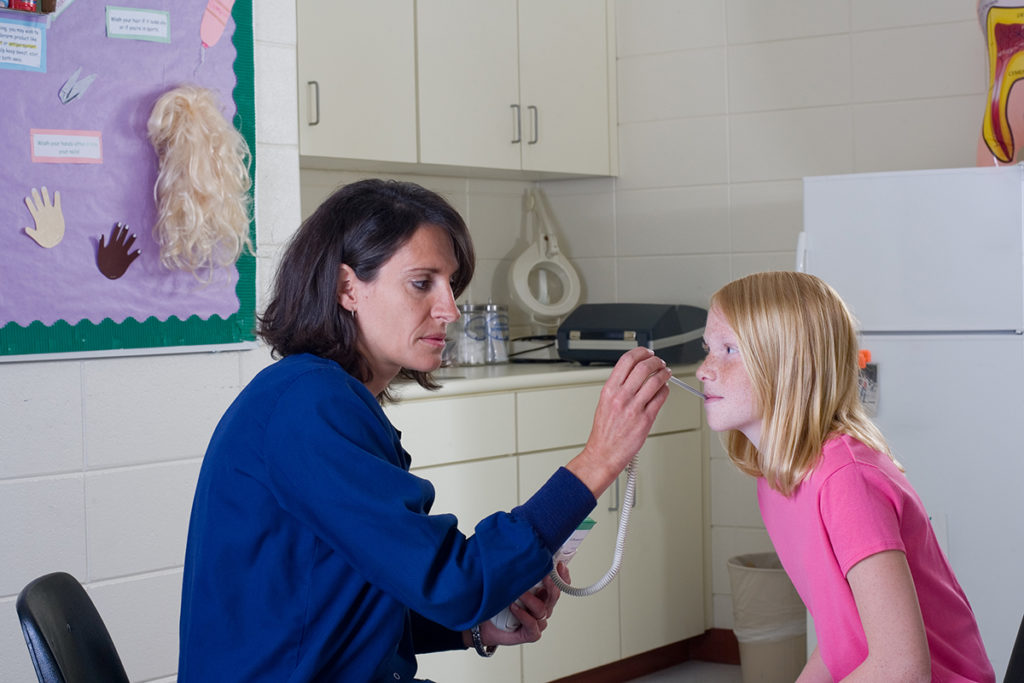
Each year, National Nurses Week is recognized from May 6 through May 12, which, not coincidentally, is the birthday of Florence Nightingale. And the Wednesday within that week is annually celebrated as National School Nurse Day to honor the contributions of professional nurses in educational settings.
School nursing is, in fact, its own specialized practice that goes way beyond Band-Aids and temperature checks to support the long-term health, wellness and academic success of students. And to celebrate National School Nurse Day, we’re sharing four facts you might not know about school nurses.
School nurses are licensed and credentialed.
In the state of California, school nurses are required to be licensed as registered nurses, and they must have a bachelor’s degree in nursing or an associated field. In addition, they must have a health services credential, requiring a fifth year of study after securing their baccalaureate.
In a recent survey, more than 68 percent of Orange County’s school nurses had obtained even higher levels of education, earning a master’s degree, a nurse practitioner certification or a doctor of nursing practice degree.
School nursing is grounded in public and community health.
School nurses strive to promote health equity, often connecting students and families with health and wellness services, financial resources, shelter and sometimes food. School nurses also address the social determinants of health and provide trauma-informed care for students who have been exposed to Adverse Childhood Experiences, or ACEs.
School nurses are advocates for children and families.
In their work with students, school nurses encourage self-empowerment, problem-solving, effective communication and collaboration with others. As advocates for safety behind the scenes, school nurses participate in the development of school safety plans that address bullying, school violence and the full range of emergency incidents that could potentially occur at a school.
School nurses help keep children in school.
Student absences due to infectious diseases result in the loss of millions of school days each year. School nurses provide a safe and healthy school environment by overseeing school-wide infection control measures, promoting vaccines and conducting disease surveillance and reporting.
Research has shown that when school nurses are available to work directly with students to assess symptoms and provide treatment, there is an increase in both students’ time in the classroom and their parents’ time at work.
A version of this story originally ran in May 2021.
